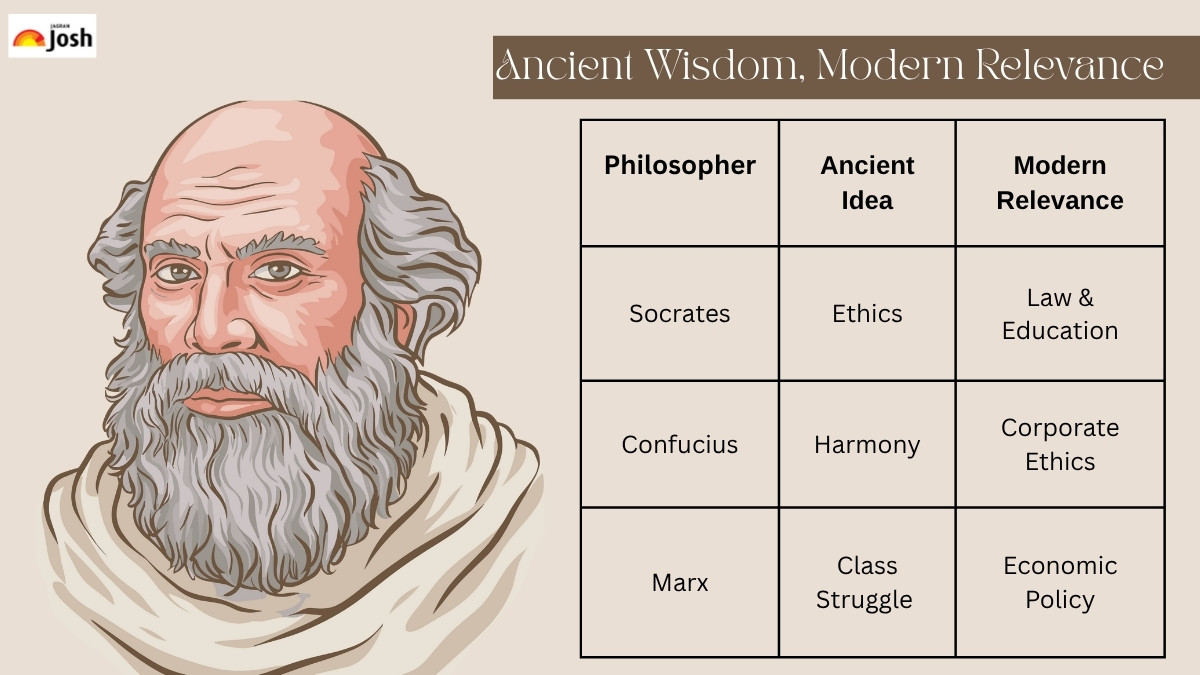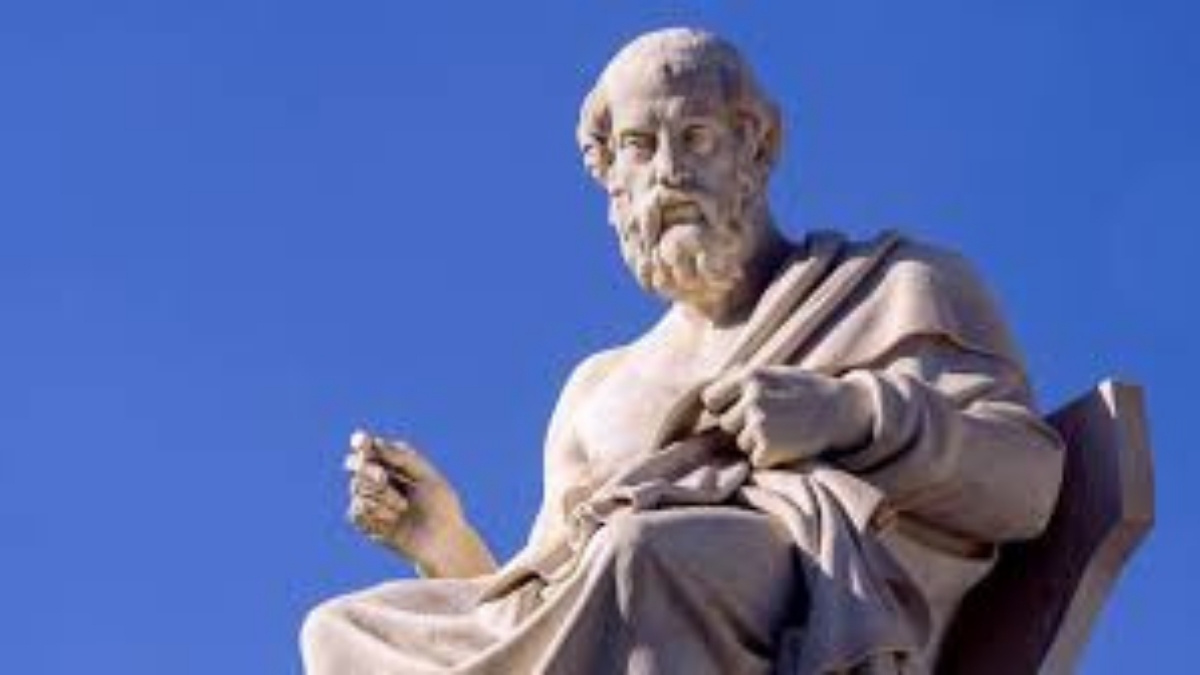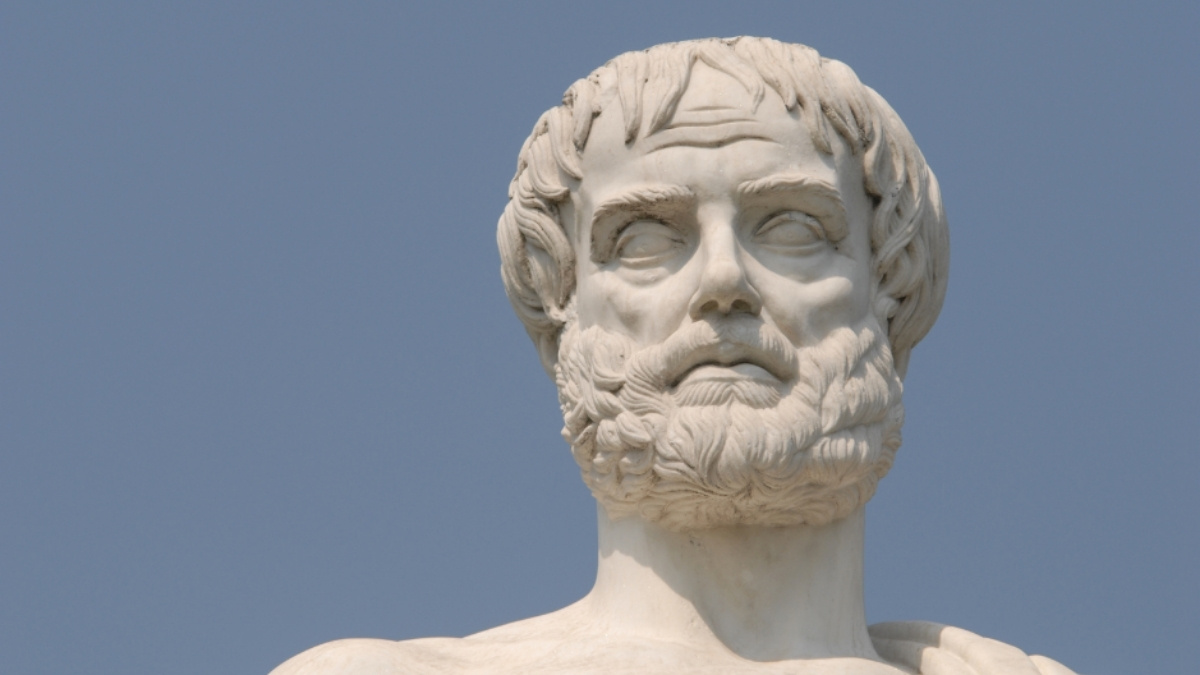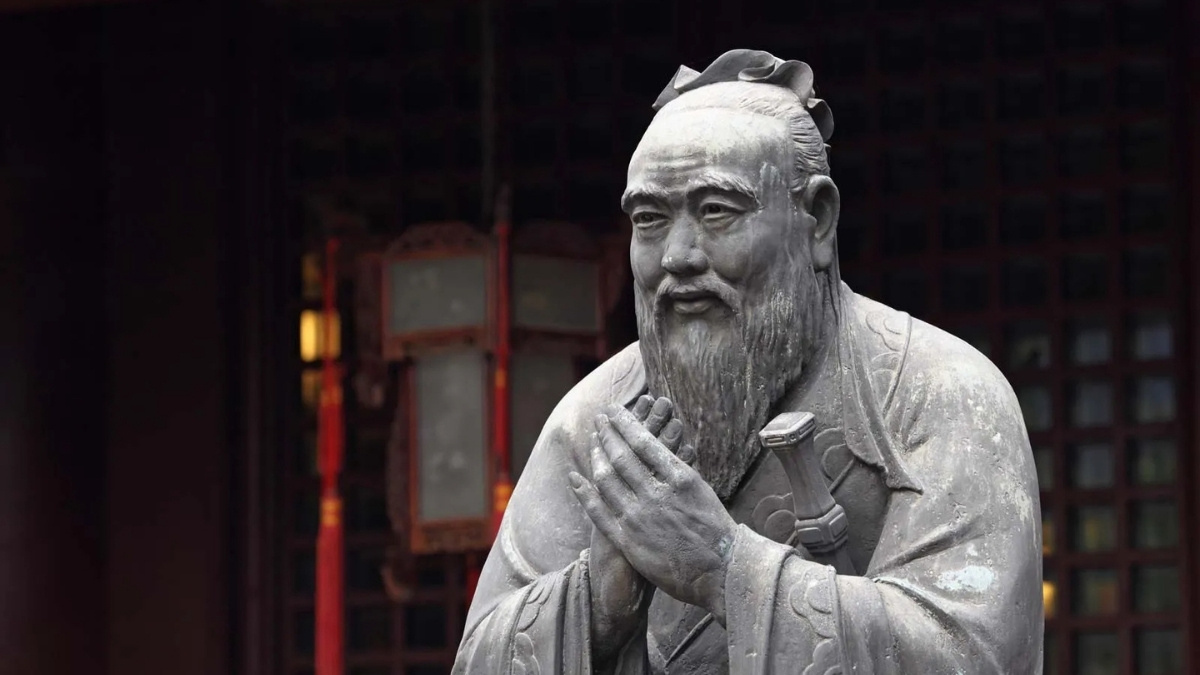Most Influential Philosophers of the World: From Socrates to Confucius, the world’s most influential philosophers have shaped human thought, ethics, and society. Through their thought, they have left legacies that still guide us today. Let us explore how philosophy is the pursuit of wisdom that has profoundly influenced human thought and society.

(Socrates in the Visual Representation, How Ancient Philosophers Still Influence Modern Life & Society.)
List of 9 Most Influential Philosophers at a Glance
Below are the top 9 most influential Philosophers who shaped our world with their key contributions:
| S. No | Philosopher | Lifespan | Key Contributions |
| 1. | Socrates | 470–399 BCE | Socratic Method, ethics, epistemology |
| 2. | Plato | 428–348 BCE | Theory of Forms, ideal state, justice |
| 3. | Aristotle | 384–322 BCE | Logic, ethics, natural sciences, empirical observation |
| 4. | Confucius | 551–479 BCE | Morality, social relationships, justice |
| 5. | Immanuel Kant | 1724–1804 | Categorical imperative, epistemology, metaphysics |
| 6. | René Descartes | 1596–1650 | Analytical geometry, skepticism, dualism |
| 7. | Friedrich Nietzsche | 1844–1900 | Critique of morality, existentialism, "Übermensch" |
| 8. | John Locke | 1632–1704 | Natural rights, government by consent, liberalism |
| 9. | Karl Marx | 1818–1883 | Class struggle, communism, critique of capitalism |
(Source: Britannica)
1. Socrates

Socrates is renowned for his contributions to ethics and epistemology. He is known as the Father of Western Philosophy. He introduced the Socratic Method, which is a form of cooperative argumentative dialogue. It remains foundational in modern education and legal systems.
2. Plato

(Credits: Words of Encyclopedia)
Plato is the architect of Idealism. He was a student of Socrates. Plato founded the Academy in Athens, one of the earliest institutions of higher learning in the Western world. His works, including "The Republic," delve into justice, the ideal state, and the theory of forms, influencing Western philosophy and political theory.
3. Aristotle

(Credits: Greek Gods and Goddesses)
Aristotle was a student of Plato, who made significant contributions across various fields, including logic, metaphysics, ethics, and natural sciences. His empirical approach laid the groundwork for the scientific method and influenced countless disciplines. Eventually, he became the philosopher of Science.
4. Confucius

(Credits: Britannica)
Confucius emphasised personal and governmental morality, the correctness of social relationships, and justice. Moreover, his teachings are compiled in the "Analects”. They have deeply influenced Chinese culture and continue to impact East Asian societies.
5. Immanuel Kant

(Credits: German Culture)
Kant's philosophy centred on duty and the categorical imperative, asserting that morality is grounded in rationality and universal laws. Moreover, he is also known as the architect of Modern Ethics. His work "Critique of Pure Reason" revolutionised epistemology and metaphysics.
Most Influential Philosophers Trivia Facts
| Here are a few trivia facts:
|
Conclusion
Therefore, the enduring influence of these philosophers highlights the profound impact of their ideas on human thought and society. From Socrates' ethical inquiries to Marx's revolutionary theories, their legacies continue to shape contemporary discussions on morality, governance, and society. By understanding their philosophies, you must have gained some of the most valuable insights into the foundations of modern thought and the ongoing evolution of human understanding.
You May Also Like To Read:
List of 9 Most Powerful Female Rulers in World History, Check Here!
List of 7 Most Famous Mathematicians in History, Check the Hidden Legends!
To see more of such stories, you can go ahead and add this site to your preferred sources by clicking here.
Comments
All Comments (0)
Join the conversation